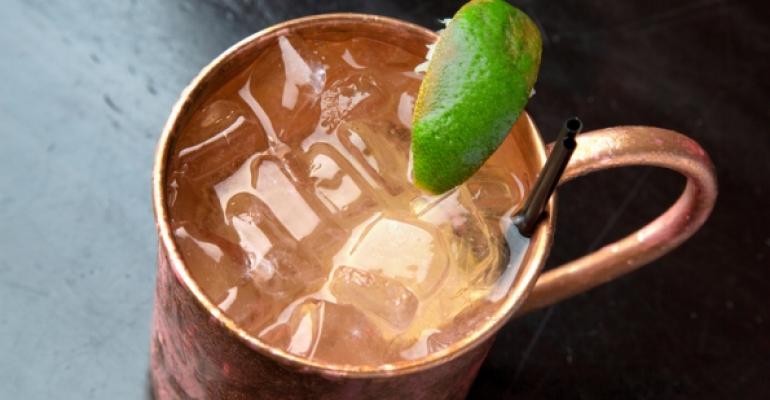Customers can see and taste authenticity in a signature cocktail. They know the difference between a unique libation and a “me-too” effort. Their high expectations keep restaurant operators mindful of quality, technique and proper drinkware when they stir or shake a signature drink at the bar.
By definition, a signature beverage embodies the personality and style of a restaurant. It showcases what an establishment does best and signals a unique experience.
In fact, quality ingredients, proper mixing, eye-catching presentation and cordial front-line service all contribute to the air of authenticity surrounding a drink. All of that is meaningful to the growing number of consumers who are enthusiasts of cocktail culture.
“Everybody is a foodie and a mixologist at home these days, it seems,” says Chris Purcell, director of food and beverage for Tilted Kilt Pub & Eatery based in Tempe, Ariz. When savvy consumers dine out, they often seek signature cocktails with a level of complexity that they have not yet mastered at home.
“They’re interested in the stories behind who's cooking their food, who's making their drinks and which ingredients are used, so they really become self-proclaimed experts,” notes Sean Parisi, formerly director of beverage for Chicago-based Levy Restaurants and now with Constellation Brands.
Insights about the importance of authenticity in signature drinks were shared during a beverage marketing roundtable attended by Purcell, Parisi and other foodservice executives at this year’s National Restaurant Association Show in Chicago. The sponsor of the roundtable was Whirley-DrinkWorks!, a designer and manufacturer of custom and collectible drinkware.
“I think being authentic, that's what we're migrating towards,” says roundtable participant Peter Zilper, vice president of operational excellence and food and beverage for the sports and entertainment division of Aramark, a Philadelphia-based onsite management company. “It doesn't mean that we complicate things. It does mean that we are all searching for value, and seeking new ways to deliver a unique experience to our customers. And we're saying it in different ways. Stay true to our brand. Have the right mix. And ultimately, find that sweet spot of just being real.”
However, with knowledgeable customers watching the bartender’s every move behind the bar, operators truly have to be on their toes when they develop signature drinks. A failure in execution or a drink that strikes people as disingenuous “is absolutely the death of your beverage program,” says Purcell.
However, the increasing proficiency and professionalism of mixologists bodes well for the successful execution of authentic signature cocktails in restaurants. “I think the gap between what entry-level bartender employees would drink and experience on their own versus what they would make at work was bigger five years ago and that gap is closing,” says Purcell. “And as that gap closes, that’s a good thing for us.”
Nevertheless, there are limits to what an operator should attempt with signature drinks. For example, drinks have to be executed within the speed of service parameters of the establishment and the skill set of the bartenders. As Purcell says, “Whatever our teams create, if you can't train it across multiple platforms, if you can't deliver it over and over again, the net result is disingenuous.” In his view, in the worst-case scenario, the customer sips the drink and realizes: “‘I can do it better at home.’”
Appropriate drinkware is helpful in communicating the concept of authenticity. Parisi stressed using drinkware that elevates the presentation of a signature cocktail rather than “whatever highball glass the bartender has lying around.”
In addition, other executives at the roundtable shared success stories of using drinkware and garnishing to keep signature drinks real for guests. Take the Mint Julep and Oaks Lily cocktails that Levy Restaurants sell in colorful, screen-printed, collectible glasses at Churchill Downs on Kentucky Derby weekend in May. “Between the two, we do 250,000 signature glassware pieces for the weekend,” Parisi says.
Moscow Mules in traditional copper mugs at Brick House Tavern + Tap and Mason jar cocktails at Joe’s Crab Shack “absolutely continue to be strong,” says Jim Doak, vice president of menu and beverage innovation for Houston-based Ignite Restaurant Group, parent of the Joe’s and Brick House concepts.
For Warren Theatres, a Wichita, Kan.-based luxury theater company, a signature cocktail themed for the recent film, “Star Wars: The Force Awakens,” garnished with a glowing stir stick resembling a light saber was such a hit it sold out in barely a day and a half. “I think a signature drink is absolutely key to the success of our beverage program,” says Les Padzensky, vice president of food and beverage for Warren.




